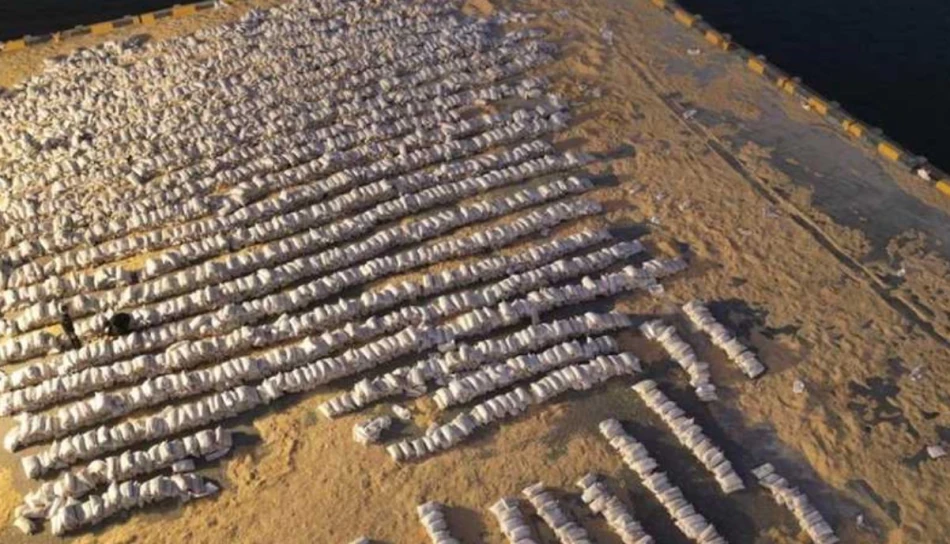
Kuwaiti Authorities Thwart Major Drug Smuggling Attempt from Iran
Kuwait Customs Intercepts Massive 5.2-Ton Drug Shipment from Iran in Major Border Security Operation
Kuwaiti customs officials have successfully thwarted a sophisticated drug smuggling operation, seizing approximately 5.2 tons of marijuana and 4,550 suspected psychoactive pills hidden within a shipment of animal feed from Iran. The bust at Doha Port represents one of the largest drug interdictions in recent memory and highlights the growing challenge of narcotics trafficking through Gulf shipping routes.
Sophisticated Concealment Operation Exposed
The seizure occurred at Kuwait's northern ports and Failaka Island customs division, where inspectors from the Doha Port facility collaborated with customs investigation units and specialized tracking teams. According to Kuwait Customs, the operation began with intelligence analysis that flagged a suspicious vessel arriving from Iranian waters.
What appeared to be a routine shipment of livestock feed quickly unraveled under detailed inspection. The professional-level concealment methods used by smugglers suggest an organized trafficking network with significant resources and experience in evading border controls.
Scale and Scope of the Bust
The confiscated materials include:
• 5,200 kilograms of marijuana
• Approximately 4,550 suspected psychoactive pills
This volume represents a street value likely running into millions of dollars, depending on final destination markets. The size of the shipment suggests it was intended for distribution across multiple countries rather than domestic consumption alone.
Regional Security Implications
This bust comes amid heightened scrutiny of maritime trafficking routes through the Persian Gulf. Kuwait's strategic position as a shipping hub makes it both a target for smugglers and a critical checkpoint for regional security efforts.
The Iran connection is particularly significant given ongoing tensions and sanctions affecting legitimate trade flows. Smuggling networks often exploit disrupted legitimate commerce, using the chaos of restricted trade to mask illegal shipments.
Comparison to Regional Enforcement Trends
Similar large-scale drug interdictions have increased across Gulf states in recent years. The UAE reported record seizures in 2023, while Saudi Arabia has dramatically expanded its customs technology and inspection capabilities. Kuwait's success suggests the country is keeping pace with regional security improvements.
Unlike previous smaller busts typically involving individual couriers, this operation's scale indicates industrial-level trafficking that requires coordinated international response.
Technology and Intelligence Success
The operation's success stemmed from advanced intelligence analysis and information gathering rather than random inspection. This approach mirrors best practices adopted by customs agencies worldwide, where data analytics and risk assessment drive enforcement priorities.
Kuwait's customs authority emphasized their commitment to continuing such operations, signaling that this bust represents systematic capability rather than lucky discovery. The coordination between multiple specialized units demonstrates institutional maturity in handling complex smuggling cases.
Legal and Procedural Next Steps
Officials have prepared formal seizure documentation and transferred all evidence to relevant authorities for legal proceedings. The professional handling suggests Kuwait is building cases not just against immediate smugglers, but potentially against broader trafficking networks.
This methodical approach often yields intelligence leading to additional arrests and seizures, making individual busts part of larger enforcement campaigns that can disrupt entire smuggling operations across multiple countries.
Most Viewed News

 Sara Khaled
Sara Khaled






